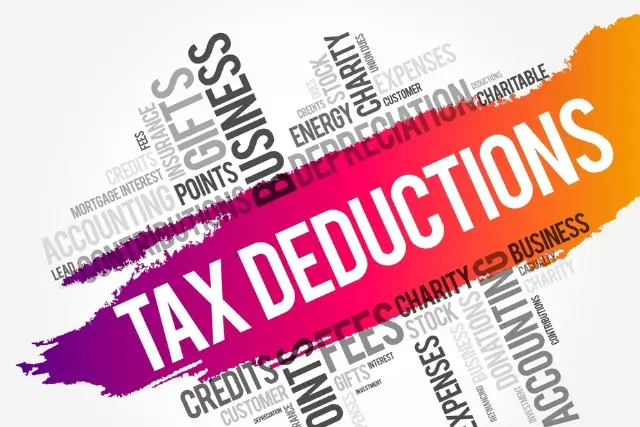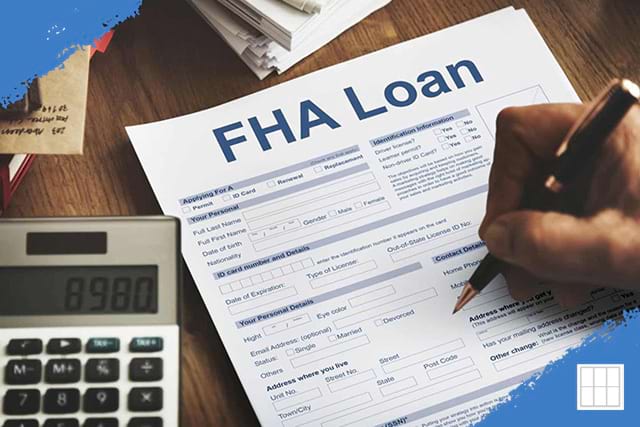Buying a home in the Kansas City metro area—whether in Kansas City, MO, or Kansas…

Can Mortgage Interest Be Deducted from Taxes in Kansas City? Your Complete 2025 Guide
If you’re a homeowner in Kansas City wondering, “Can mortgage interest be deducted from taxes?” the short answer is yes—but only under specific conditions. This federal tax benefit can significantly reduce your taxable income if you itemize your deductions on your tax return. However, with changes from the Tax Cuts and Jobs Act (TCJA) still in effect for the 2025 tax year, and potential state variations between Missouri and Kansas, it’s crucial to understand the rules to maximize your savings. In this comprehensive guide, we’ll break down everything you need to know about the mortgage interest deduction for Kansas City residents, including eligibility, limits, how to claim it, and local considerations.
Whether you’re in Kansas City, Missouri, or across the state line in Kansas, this deduction applies federally, but state taxes add another layer. We’ll cover federal rules first, then dive into state-specific nuances, calculation tips, and common pitfalls. By the end, you’ll have actionable steps to determine if itemizing for mortgage interest makes sense for your 2025 taxes.
What Is the Mortgage Interest Deduction?
The mortgage interest deduction allows eligible homeowners to subtract the interest paid on their home loan from their taxable income, potentially lowering their overall tax bill. This is an itemized deduction reported on Schedule A of Form 1040. It’s designed to make homeownership more affordable by providing tax relief on one of the largest expenses for many families.
To qualify, the mortgage must be for a “qualified home,” which includes your primary residence or a second home (like a vacation property). The loan must be secured by the property—meaning the lender can foreclose if you default. This includes first mortgages, home equity loans, and home equity lines of credit (HELOCs), but with restrictions on how the funds are used.
Key point: You can only claim this if you itemize deductions instead of taking the standard deduction. For 2025, the standard deduction is $15,000 for single filers and married filing separately, $22,500 for heads of household, and $30,000 for married filing jointly. If your total itemized deductions (including mortgage interest, property taxes, charitable contributions, etc.) exceed these amounts, itemizing could save you money.
2025 Rules and Limits for the Mortgage Interest Deduction
For the 2025 tax year, the rules remain largely unchanged from recent years due to the TCJA, which is set to expire at the end of 2025. Here’s what you need to know:
Deduction Limits Based on Loan Date and Amount
- Mortgages Originated After December 15, 2017: You can deduct interest on up to $750,000 of qualified residence indebtedness for married filing jointly ($375,000 for married filing separately). This cap applies to the combined total of all mortgages on your qualified homes.
- Mortgages Originated On or Before December 15, 2017: Higher limits apply—up to $1 million for married filing jointly ($500,000 for married filing separately)—as long as the loan hasn’t been substantially modified.
- Home Equity Loans and HELOCs: Interest is deductible only if the funds were used to buy, build, or substantially improve the home securing the loan. You can’t deduct interest used for other purposes, like paying off credit cards.
These limits are for acquisition debt (used to purchase or improve the home). Refinanced loans generally follow the rules of the original mortgage date.
Other Eligible Expenses
In addition to regular mortgage interest, you may deduct:
- Mortgage Points: If mortgage points were paid to reduce your interest rate, these are deductible in the year paid if certain conditions are met (e.g., for a primary residence purchase).
- Late Payment Charges: If treated as interest by your lender.
- Prepayment Penalties: In some cases, if they’re considered interest.
However, you can’t deduct principal payments, homeowners insurance, or HOA fees.
Impact of the SALT Deduction Cap
The State and Local Tax (SALT) deduction, which includes property taxes, is capped at $40,000 ($20,000 for married filing separately) for 2025, per the One Big Beautiful Bill Act (OBBBA), which modified the original $10,000 cap set by the TCJA. This cap is subject to a phasedown for taxpayers with modified adjusted gross income (MAGI) exceeding $500,000 in 2025, reverting to $10,000 if fully phased out. For 2026, the cap increases to $40,400 with a MAGI threshold of $505,000, followed by 1% annual increases until 2030, when it reverts to $10,000 ($5,000 for married filing separately). This often pairs with the mortgage interest deduction when itemizing, so high property taxes in Kansas City could push you over the standard deduction threshold.
Post-2025 note: Starting in 2026, the mortgage interest deduction limits will revert to pre-TCJA levels ($1 million cap), and other changes may occur unless extended by Congress.
Kansas City-Specific Considerations: Missouri vs. Kansas
Kansas City straddles the Missouri-Kansas border, so your state of residence affects how the federal deduction flows through to your state taxes. Both states generally conform to federal itemized deductions, but with nuances.
Missouri Residents (e.g., Kansas City, MO)
- Missouri allows you to itemize on your state return if you do so federally. The mortgage interest deduction reduces your Missouri taxable income similarly.
- Property taxes: Deductible up to the federal SALT cap of $40,000 for 2025, but Missouri has no additional state cap.
- Local incentives: Check for Kansas City, MO, property tax abatements or rebates that might reduce your overall tax burden, indirectly boosting the value of your mortgage interest deduction.
Missouri Department of Revenue tax guidance
Kansas Residents (e.g., Kansas City, KS)
- Kansas also conforms to federal itemized deductions, allowing the mortgage interest deduction on Schedule A of the Kansas return.
- Standard deduction: Kansas offers its own standard deduction ($3,500 single, $8,000 MFJ for 2025), so compare against itemized.
- Sales tax option: If you bought a home recently, you might elect to deduct sales taxes instead of state income taxes under SALT, up to the $40,000 cap for 2025.
Pro tip: Use tax software or consult a local CPA in Kansas City to run scenarios for both states, as cross-border living can complicate things. Average home prices in Kansas City (around $250,000-$350,000) mean most mortgages fall well under the $750,000 cap, making this deduction accessible for many.
Kansas Department of Revenue tax resources
How to Claim the Mortgage Interest Deduction in 2025
Claiming is straightforward but requires documentation:
- Receive Form 1098: Your lender sends this by January 31, 2026, showing interest paid in 2025.
- Itemized vs. Standard: Use IRS worksheets or tax software to compare.
- File Schedule A: Report mortgage interest on line 8a-8c.
- Additional Forms: If deducting points, use Form 1040 instructions.
For Kansas City filers, e-file federal and state returns together for efficiency. If your mortgage spans multiple properties or involves co-owners, allocate interest proportionally.
Calculation Example
Suppose you’re married filing jointly in Kansas City, MO, with a $500,000 mortgage (post-2017) at 4% interest. Annual interest: ~$20,000. If your other itemized deductions, including $15,000 in property taxes, total $35,000, your total itemized ($55,000) exceeds the $30,000 standard, saving you taxes on $25,000 of income (at 22% bracket: ~$5,500 savings). The SALT cap of $40,000 ensures your full property tax deduction is allowed in 2025.
Common Pitfalls and Tips for Maximizing Savings
- Not Itemizing: With higher standard deductions, only about 10% of taxpayers itemize—double-check if it’s worth it.
- Refinancing Traps: Cash-out refis may limit deductibility.
- Second Homes: Boats or RVs can qualify if they have sleeping/cooking facilities.
- Audit Risks: Keep records for 3-7 years; the IRS scrutinizes large deductions.
To maximize: Bundle deductions (e.g., extra charitable giving), consider refinancing for lower rates, or explore energy-efficient home improvements for additional credits.
FAQs About Mortgage Interest Deduction in Kansas City
Can mortgage interest be deducted from taxes if I’m renting out part of my home?
Yes, but only the portion used as your residence. Allocate based on square footage.
What if my mortgage is over $750,000?
You can only deduct interest on the first $750,000; the rest is nondeductible.
Does the deduction apply to investment properties?
No, this is for personal residences only. Rental properties use Schedule E for business expenses.
How does divorce affect the deduction?
The person who pays the interest and owns the home can claim it, per divorce decree.
Is private mortgage insurance (PMI) deductible in 2025?
PMI deductibility expired in 2021 and hasn’t been extended for 2025—check for updates.
Can I deduct interest on a home equity loan for non-home improvements?
No, under current rules through 2025.
Final Thoughts: Is the Mortgage Interest Deduction Right for You in Kansas City?
Yes, mortgage interest can be deducted from taxes in Kansas City if you itemize and meet the criteria—potentially saving thousands. With 2025 being the last year under TCJA limits and the increased SALT cap of $40,000, now’s the time to review your finances. Consult a tax professional or use free resources for personalized advice.
If you’re buying or refinancing in Kansas City, factor this deduction into your decision. Ready to optimize your taxes? Start by gathering your 1098 forms and running the numbers today.
This guide is for informational purposes only and not tax advice. Tax laws change; verify with the IRS or a professional.



